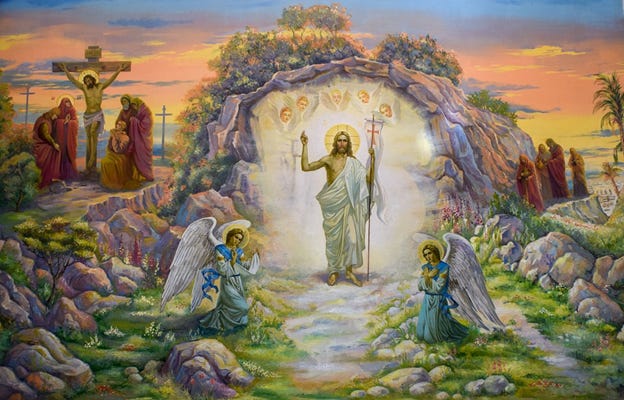
One of my favorite books on the gospel is Frederick Buechner’s Telling the Truth: The Gospel as Tragedy, Comedy, and Fairy Tale.[1] According to Buechner, we can understand the gospel in terms of a three-act play. First, there is man’s tragedy. This is the horror of the fall. God created humans to flourish and yet humanity’s first pair chose a different path. They rebelled. They sought to meet their needs apart from God. As a result, all of creation fell, including humans. Thus, our state as we enter this world is one of alienation: we are separated from God, corrupt, sinful, and in need of redemption. Next, there is the divine comedy: who would have foreseen that God incarnated? Who would have predicted that God entered into the story, taking on a human nature, so that we could be saved from the penalty of our sin? This is high comedy—the unforeseen, the unexpected. And the tragedy of the incarnation is the cross: man’s rejection of Jesus. But again, God does the unexpected, the unforeseen! Who would have seen it coming? Jesus died on that cross only to rise from the dead! N. T. Wright notes that the disciples wouldn’t have expected Jesus to resurrect:
The disciples were emphatically not expecting Jesus to be raised from the dead, all by himself in the middle of history. The fact that they were second-Temple Jews and that resurrection was, as some have said, an idea that was in the air, simply won’t account for the radical modifications they made in the Jewish belief or for the astonishing features of the Easter stories themselves.[2]
The Jewish expectation was for a future resurrection of all faithful people in the renewed cosmos, not an individual resurrection in human history! And the stubborn facts of the resurrection, including the empty tomb and Jesus’s appearances, pose to those in the first century, and to us today, a “huge question.”[3] That question, ultimately, is about hope: is it possible to believe that all will be made well? Is it possible to flourish? Is it possible to believe in life after death? N. T. Wright continues,
Hope is what you get when you suddenly realize that a different worldview is possible, a worldview in which the rich, the powerful, and the unscrupulous do not after all have the last word. The same worldview shift that is demanded by the resurrection of Jesus is the shift that will enable us to transform the world.[4]
This brings us to Buechner’s final act—the fairy tale ending. On the Christian story, one day all will be made well. One day, all will be known by their true name. And for those who believe in Jesus, that name is beloved.
Easter reminds us that we are part of a story—a good story—in which we find fulfillment. There is hope, and because of Jesus’s resurrection that hope is a living hope (1 Peter 1:3). Easter also reminds us of God’s grace: for who would have foreseen that the God of the universe, the creator of all distinct reality, pursues us, even as we run. This is comedy in the proper sense of that word: the unforeseen, the unexpected. And it makes for a great story.
Notes
[1] Frederick Buechner, Telling the Truth: The Gospel as Tragedy, Comedy, and Fairy Tale (San Francisco: HarperCollins, 1977).
[2] N. T. Wright, Surprised by Hope (New York: HarperCollins, 2008), 60.
[3] Ibid., 69.
[4] Ibid., 75.
— Paul M. Gould is an Associate Professor of Philosophy of Religion and Director of the M.A. Philosophy of Religion program at Palm Beach Atlantic University. He is the author or editor of ten scholarly and popular-level books including Cultural Apologetics, Philosophy: A Christian Introduction, and The Story of the Cosmos. He has been a visiting scholar at Trinity Evangelical Divinity School’s Henry Center, working on the intersection of science and faith, and is the founder and president of the Two Tasks Institute. You can find out more about Dr. Gould and his work at Paul Gould.com and the Two Tasks Institute. He is married to Ethel and has four children.
Image by Dimitris Vetsikas from Pixabay









